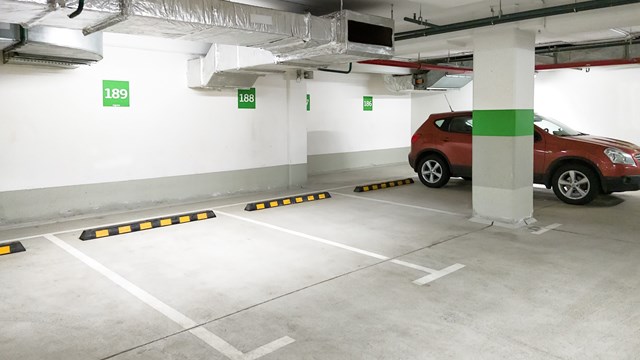You may not realize it, but your building may be hemorrhaging money. Not in the form of disastrous lawsuits or maintenance crises like a collapsed roof or exploded boiler, but in a steady trickle coming from your method of ordering supplies and keeping tabs on small, seemingly inconsequential bills.
"The most common source of loss in a residential building is wasteful spending due to redundant or incorrect ordering of materials and supplies that are not returned or refunded," says Harrin Platzner of Platzner International Management in Manhattan. "Another major excess of expense is for parts and labor that are actually the tenant or shareholder's responsibility, such as repairing bathroom plumbing and interior fixtures."
Smaller maintenance items and things like janitorial supplies are usually ordered by a superintendent or other authorized building staffer, who may be unaware of what expenses are covered by the building and what are actually the responsibility of shareholders.
"It's nearly impossible to catch all of these expenditures unless the managing agent reviews every single invoice or work order with a fine-toothed comb," says Platzner. Smaller purchases for parts or supplies may go unnoticed, while the larger expenses are red-flagged and monitored very cautiously.
Possible indicators that dishonest or wasteful purchases are being made by building staff or management are large expenses (over $1,000) or redundant quantities of small items. One such situation described by Platzner concerns "80 parts" purchased, but only 50 total apartments in the complex. In another example, he cites the purchase of faucet hardware by a superintendent when interior plumbing is actually the responsibility of the homeowner.
Most regularly-ordered items are usually purchased in similar quantities every time, so a large quantity that differs from past repeated orders may be an indicator of waste or fraud.
It's also not uncommon for buildings to be victimized by outright theft, according to Neil Sonenberg, a partner with Rosen Seymour Shapss Martin & Co, CPAs in Manhattan.
"A big area is janitorial maintenance supplies," says Sonenberg. "Supplies inevitably disappear - there's no other way to say it. We could tell you war stories about very nice Fifth Avenue buildings with very expensive, top-of-the-line copper plumbing supplies, where things were walking out the door. When the board looked at their janitorial supply information in the management expense statement, we saw it rising for three years."
According to Syed Haque, an accountant specializing in co-ops and condos, as well as a board member and former treasurer of his home condo association, "Most loss and waste is not a result of sloppy organization or accounting, but is rather caused by inefficient ordering of materials and occasional internal theft, such as materials ordered for personal use or resale rather than for legitimate use by the association."
By law, board members are not to use their position for personal financial gain through the recommendation of suppliers, institutions or contractors that could result in - or even give the appearance of, the granting of favors or gratuities to directors."
"In actuality, however," Haque explains, "condos and co-ops have very little tangible inventory; losses are more often caused by employees or tenants taking small quantities of supplies, which can go easily unnoticed and are very difficult to account for."
Platzner agrees, saying, "It's practically impossible to count every single garbage bag and light bulb used unless a system of signing off and checking inventory lists is followed on every single occasion."
Kickbacks do occur occasionally, and are extremely difficult to account for because there is no real way to track them. According to Platzner, gifts to staff or management are infrequent and usually limited to acceptable holiday or occasion gifts, rather than unethical bribes or gifts of money. It is usually management's policy not to accept any monetary gifts or favors - however difficult that may be to control.
According to Sonenberg, "[Boards] should sit down with [their agent] and work out a "˜perpetual inventory system' to monitor their supply areas. It can be a lot of work at first - physical counts have to take place regularly, for example - and from time to time, you have to monitor the ledger for goods in and goods out. Quarterly, you'll need to do an actual physical inventory. In the three buildings where we've implemented checks like these, janitorial expenses have gone down 30 to 50 percent. So it's a huge savings."
In order to monitor cash outflow and ensure that jobs and supplies are bid out properly, the property manager or agent should establish a set of purchasing principles. First, of course, are considerations of price and quality. The cheapest option may not always be the best one, but a residential building is a business, and as such has a vested interest in getting the lowest price possible for goods and services. Secondly, no shareholder/owner, employee, former employee or members of their immediate family should be used as a supplier of any materials, supplies, equipment or services. Also, no shareholder/owner, employee, or family member should be given any materials, supplies or services at any price under any circumstances without the consent and approval of the manager.
Also, management companies generally advise their building staff members to get at least three competitive bids for any item over a set limit - $1,000, for example - unless the property manager and board treasurer both agree that competitive bidding isn't absolutely necessary. That could be because an emergency requires an item to be purchased immediately, or because the present supplier is working out well and offers competitive pricing, or - unlikely as it may sound in a city as large as New York - because there is simply only one supplier who provides a particular good or service.
As a general policy, Haque says no major or bulk purchases should be made until plans for those purchases are reviewed by the building's finance committee and approved by the board. All purchases made out of reserve accounts should be approved by the finance committee and by the board. Haque further explains that, "Normal operating supplies are usually paid for from the operating account, while the reserve fund is used for major capital improvements and replacement of property."
The manager or department supervisor is to acknowledge receipt of goods or services by endorsing the purchase price on the invoice before the invoice is paid. Each department supervisor is responsible for controlling his or her department's inventory using daily, weekly, monthly, and annual inventory counts (depending on the type of inventory: office supplies, cleaning products, etc.) that are recorded and reviewed periodically. The manager is responsible for implementing the utilization of forms that reflect a business-like and orderly image, such as purchase orders, requests for quotation, and contracts.
In order to establish oversight and cost-controls in a building's day-to-day business transactions, a system of checks and balances must be put in place that keeps track of inventory purchases and other expenses, such as garages and parking. At most management companies, the managing agent approves purchase invoices on a daily basis as they are processed through the management office and creates weekly reports for checking and balancing the week's expenses. In addition, the co-op's accountants review the building's expense records on a monthly basis prior to review by the board in order to ensure everything is in order. "Because a management company is susceptible to regular audits, many pairs of eyes must continually look over the co-op's expenses, so that it would require a major collusion of many different parties for dishonest transactions to pass through unnoticed," says Platzner.
Haque believes that "there can never be too much oversight in a condo or co-op association. In most cases there is not enough transparency in money matters."
It is important to clearly define the financial authority of and outline various policies for the manager and staff to fulfill the purchasing, receiving and inventory control functions. It is the board's responsibility to outline the controls needed while the managing agent is to be held accountable for the implementation and conformity to the requirements.
The managing agent should be ultimately responsible for overseeing building spending, although the board is in turn responsible for checking after the agent. The general manager is also responsible for determining the need for and appropriateness of service contracts or agreements.
Often, supplies are ordered by the superintendent and each invoice is approved by the managing agent before payment is made. The board then reviews monthly expenditures, and makes note of anything out of the ordinary, such as a significant change in the total cost or quantity of an item. Although the managing agent must review and sign off on every large purchase, according to Platzner, "limiting the superintendent's spending ability - or what may be purchased without the agent's prior approval - may be one way to avoid unnecessary expenditures at the co-op's cost."
"Internal fraud and business liability insurance is available to condo and co-op associations, as a form of protection against dishonest practices that may occur within the organization," says Haque, who notes a disturbing trend in some buildings. "Some associations, however, are now cutting back on what they consider "˜unnecessary' insurance due to the high rise in insurance costs in the past few years." Cutting corners can cost a building in the long run, however, should it be the victim of dishonest practices or theft.
If a board member or a shareholder suspects that something dishonest or financially damaging is occurring within the building, Platzner suggests that they should present a claim in writing to the managing agent and the board of directors.
Another way to keep tabs on proper management practices is through shareholder involvement. According to Platzner, "shareholders should always be entitled access to the co-op's expense and financial records, which should be furnished by the managing agent upon written request by the shareholder. It is the shareholder's right to full disclosure of how the co-op's money is spent."
"It's very important to keep good inspection tools over your managing agent's head, and over your staff's head," says Sonenberg. "People and companies don't do what you expect of them - they do what you inspect of them."







Leave a Comment